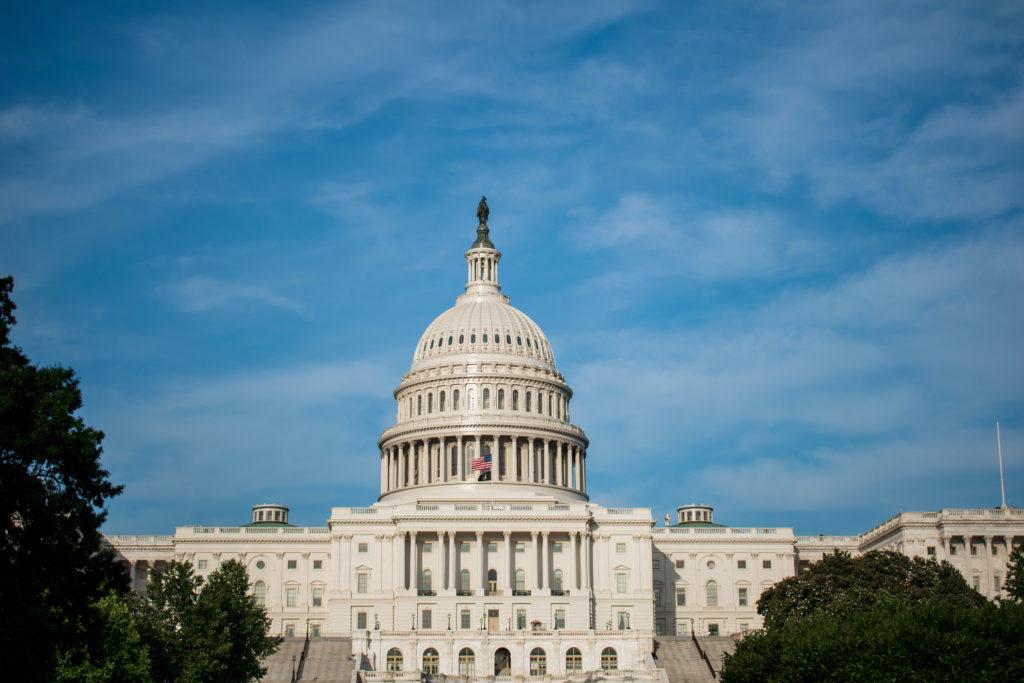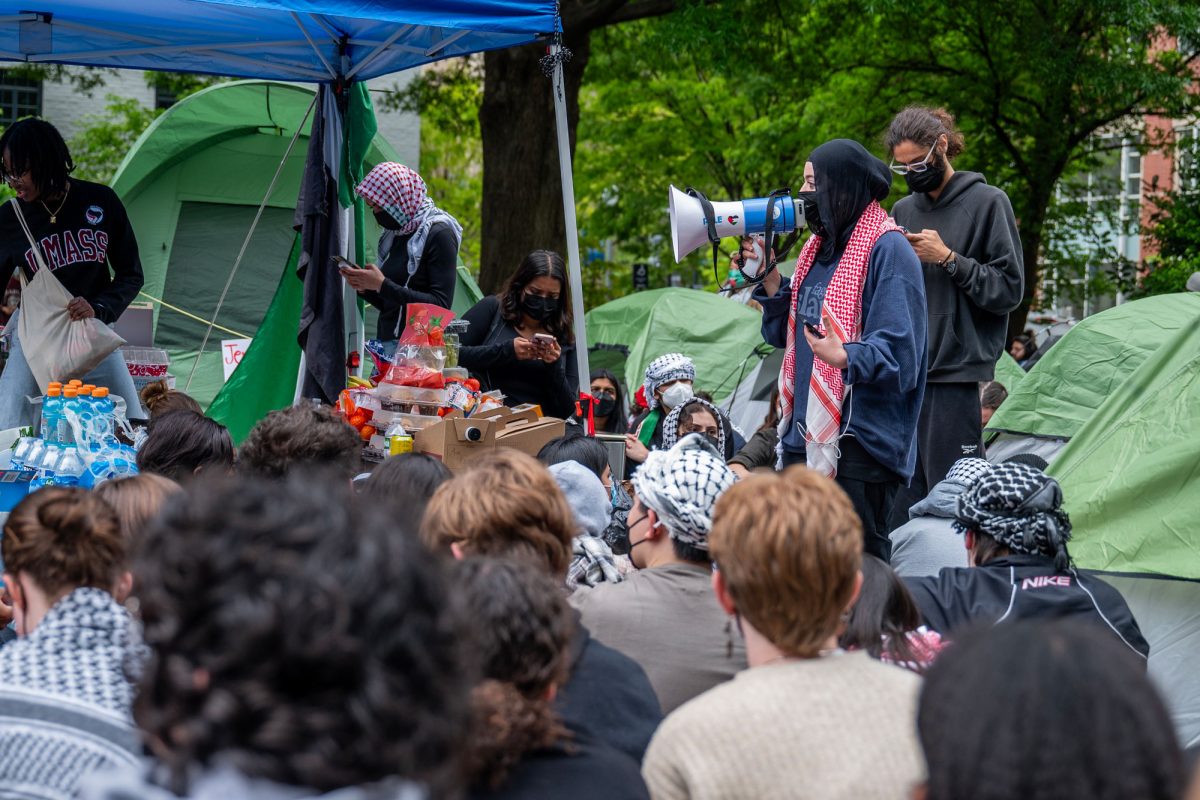Facing legislation from a new Republican majority in the U.S. House of Representatives that may impose on D.C.’s crawl toward statehood, Del. Eleanor Holmes Norton and local advocates are gearing up to ride growing national support through a long fight for state recognition.
Norton, a Democrat and the District’s nonvoting representative in the House, introduced the Washington, D.C. Admission Act for the third time last Monday before the newly instated members of the chamber – a bill that would grant the District full voting representation in Congress. Norton said despite the growing political division in Congress that has limited vital bipartisan support, she will work with senators to safeguard D.C.’s voting rights amid mounting legislative threats to D.C.’s self-governance from the House GOP.
The bill would admit D.C. as a new state named Washington, Douglass Commonwealth, granting citizens full federal voting representation in Congress and local government autonomy while shrinking the federal district land to the U.S. Capitol, the White House, the Supreme Court, the “principal federal monuments” and the National Mall. The District has no voting members in the House or Senate, and Congress can also block any bills proposed by the D.C. Council under the D.C. Home Rule Act – a bill passed in 1973 granting D.C. citizens the right to vote in presidential elections, a city council and a mayor.
Under Democratic control, the House voted to declare D.C. a state for the first time in its history in June 2020 and again in April 2022, a docket that Norton said proves the bill’s momentum toward the Democratic Senate floor. Norton said despite the “record” 165 original cosponsors supporting her bill upon introduction, with six more as of Sunday, she has “no doubt” the bill will be stalled in the House this session, where Republican representatives hold a nine-seat majority.
She said securing co-sponsors and introducing the legislation a third time despite its probable inability to pass the House pushes the statehood fight forward, citing increased national attention from social media about the movement.
“You can’t get statehood without Republicans and Democrats being for it,” Norton said in an interview. “But you can’t get statehood without moving it every single year, and that’s why I’m going to move it this year, despite the fact that we have a Republican House.”
Norton said to rally support for D.C. statehood legislation, she will work with the Senate to prevent new “radical” Republican representatives from blocking or repealing bills concerning the District’s voting representation.
Rep. Andrew Clyde, R-GA, teased introducing a bill repealing D.C.’s Home Rule in July. Last week, Republican representatives banned Mayor Muriel Bowser from the House floor and began allowing unlimited amendments on federal spending bills as part of their new rules package. The spending move has previously been used to block the District from using its own tax dollars to fund abortions for low-income residents in 2017 and restricted D.C. from legalizing the sale and tax of cannabis two years before that.
Republican lawmakers also introduced resolutions opposing a bill allowing noncitizens to vote in D.C. last week, which the D.C. Council passed 12-1 in October. The resolutions are unlikely to pass the Democratic Senate or be signed into law by President Joe Biden, but they signal GOP resistance toward expanding voting representation in the District.
“It has to do with Republicans opposing whatever the District of Columbia does, largely because it’s a large Democratic jurisdiction,” Norton said.
Biden won more than 90 percent of the District’s popular vote in 2020, and Democrats make up nearly three-fourths of D.C.’s registered voters. When members of the Democratic-majority House voted on Norton’s statehood bill in 2021, it passed 216 to 208 – split down party lines.
Patrice Snow, the communications director for statehood advocacy organization DC Vote, said the group has ramped up its lobbying efforts since Republicans took control of the House last week, focusing on senators, including Sen. Joe Manchin, D-WV, Sen. Kyrsten Sinema, I-AZ, Sen. Lisa Murkowski, R-AK, Sen. Tim Scott, R-SC, and Sen. Angus King, I-ME, who they hope will advocate for statehood and block GOP House representatives from interfering with local D.C. legislation.
“Their favorite play thing is the 700,000 tax-paying residents of Washington, D.C.,” Snow said. “They have this kind of unhealthy obsession with them, and it’s starting to manifest itself as we speak.”
Snow said lawmakers hope to secure the District’s representation in Congress and national voting accessibility for historically underrepresented communities, like people of color, with a “three-legged stool” of voting rights legislation. She said the trio includes Norton’s bill and two others that have been introduced but have yet to pass – the Freedom to Vote Act, a bill proposed by Sen. Amy Klobuchar, D-MN, which expands nationwide voting accessibility, and the John Lewis Voting Rights Advancement Act, which increases federal oversight of states’ voting laws to protect fair voting access.
“Voting rights are under attack,” Snow said. “Expanding democracy and losing our democracy is one of the biggest issues that’s happening right now, so we’re trying to market it as they all go together.”
Robinson Woodward-Burns, an assistant professor of political science at Howard University and a D.C. resident of 35 years, said the movement is closer to enactment than ever before because of the bills’ previous success in the House which has sparked national support.
“It’s a very long fight, it’s an old fight, and a lot of people outside of D.C. don’t think or care about it a lot,” Woodward-Burns said. “So, I’m really surprised and personally pretty happy to see it garnering national attention and to see people thinking about us.”
Maxine Davis, the organizing director for the D.C. branch of the American Civil Liberties Union, a national nonprofit advocacy organization, said the ACLU has testified in Congress every time Norton has introduced statehood bills because the disenfranchisement of D.C.’s voters presents barriers to people of color.
Black residents nearly equal the District’s population of white residents – about 45.8 percent of D.C.’s 671,000 residents are Black compared to 45.9 percent of white residents, according to the 2020 U.S. Census.
“The truth is that continued lack of statehood is rooted in racism,” Davis said.
Josh Burch, the founder of Neighbors United for D.C. Statehood, a grassroots organization supporting the District’s federal representation, said the group is making their case to senators who have not yet voiced their support for statehood, like Sen. Sinema, Murkowski and King by working with “like-minded” groups in their home states and pushing to educate voters about the cause by putting up yard signs advocating for D.C.’s statehood.
“Does every person in America deserve the same basic democratic rights and responsibilities?” Burch said. “And if the answer is yes, then D.C. statehood is the next step in that movement.”
Grace Chinowsky contributed reporting.







